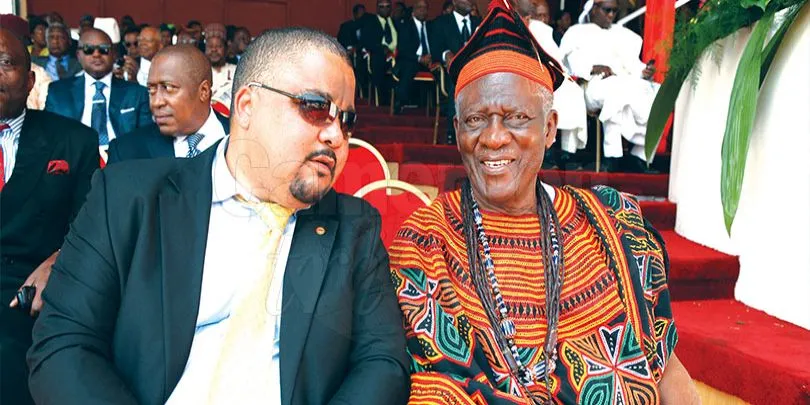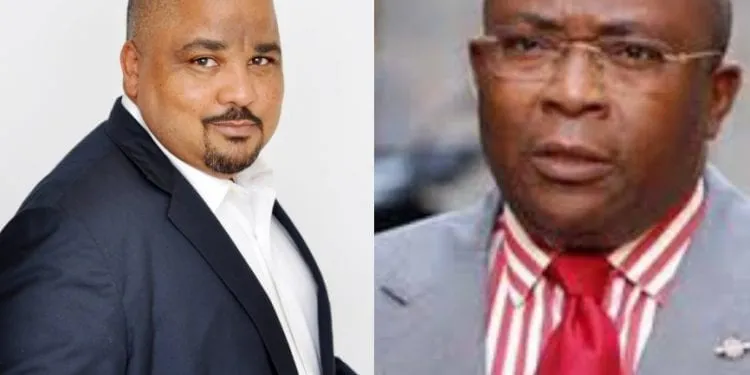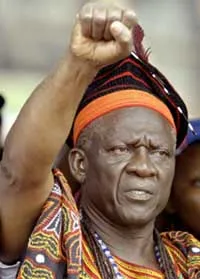The opposition Social Democratic Front (SDF) was born from the sweat and blood of the people of Cameroon, especially those in Bamenda, capital of the country’s North West Region.
Birthed on May 26, 1990 amidst rain, bullets and repression, the SDF party has continued to face a watershed challenges as it put up a democratization battle against the autocratic regime of sit-tight President Paul Biya.
The SDF created in 1992 and has since subsided to unimaginable depths.
Although several sources say the SDF candidate Ni John Fru Ndi won the 1992 presidential elections, the party failed to seize power after Biya claimed a narrow win.
Despite the debacle in its early days and the ‘villes mortes’, the party survived, participated in the National Assembly and the Senate, maintained a grassroots structure, and prepared for other presidential elections, with that of 2018 sealing the fate of the party.
A finely tuned analysis of the fortunes of the SDF party shows that it opened up the political space and brought basic freedoms including freedom of speech.
Although internal strives weakened, the party founded by Ni John Fru Ndi, survived and saw many electoral and legal reforms, including the fight against corruption in Cameroon.
Anglophone crisis and COVID-19
Formed as an Anglophone political voice, the opposition Social Democratic Front (SDF) fought to restore the lost glories of the people of the North West and South West Regions.
When the current crisis erupted in 2016, lawmakers of the SDF marched along the streets of Buea to support teachers, lawyers and students who had confronted government with demands for the protection of the Anglo-Saxon heritage.

Ni John Fru Ndi SDF Party
Unfortunately, the crisis soon became an armed conflict that turned against the SDF. Destabilised by the mass exodus of its militants, most of whom have become the target of government forces and separatist militias, the SDF became divided over the way out of the crisis and its participation in the 2018 senate elections, 2018 presidential elections and the February/March 2020 local elections.
Several members of the party were held hostage by armed separatists while the houses of SDF cadres were torched. The SDF is now suffering the full brunt of reprisals by armed militias operating in English-speaking regions.
The SDF emerged fourth in the 2018 presidential elections, got seven senators from the North West in 2018, retained just one municipal council in 2020 and now has just five members at the National Assembly.
As the party’s power base is being eroded by the Anglophone crisis, COVID-19 reportedly killed some kingpins of the party including SDF National Legal Adviser, Barrister Sama Francis.
Death has also harvested the likes of Hon. Joseph Banadzem and Hon. Joseph Mbah Ndam.
Kidnapped twice by armed separatists, the SDF National Chairman, Ni John Fru Ndi has now taken up residence in Yaoundé and has announced he will no longer renew his mandate as the party’s leader. Fru Ndi had promised he would be “ready to die in Bamenda if need be” but has now changed his mind all together.
Battle for succession
As Fru Ndi retires, he leaves behind a party in shambles. With an irredeemably weakened political base, the party is further shredded by the battle to occupy the National Chairman position.
The raging feud between the two SDF representatives in the national assembly from Wouri in the Littoral region, Honourables Nintcheu Michel and Joshua Osih had another rebound.
on Sunday, March 21 when the Littoral executive committee slammed article 8.2 on Hon. Osih for anti-party activities.
According to SDF statutes article 8.2 means, a member auto-excludes him or herself from the party for anti-party activities. The signing of a petition by Hon. Osih with two other SDF MPs representing Boyo Division in the North West alongside some 60 CPDM MPs in reply to US congressional representatives made the SDF cup to overflow.

For the first time in the history of the SDF, Ni John Fru Ndi allowed Joshua Osih to run for presidential election in 2018 in Cameroon
The Littoral executive committee decision is already drawing condemnations from a lot of high profile SDF members who say such a decision is uncalled for at a time when the reconciliation commission headed by Hon. Tchatchouang has been going round to bring unity and peace between feuding members of the party and those destroyed. In fact, that commission was praised during the national executive meeting that held in Yaoundé on March 13, 2021.
No doubt, the decision also has many backers.
NEC condemns SDF MPs
In that same meeting of March 13, the issue of the petition signed by SDF MPs including its 1st Vice National chairman came up for deliberations. In its resolutions, “NEC frowned at the signatories of the petition written to the American congress by some members of the National Assembly, including the 1st Vice National President – Honourable Joshua Osih, and tasks them to, with the same vigour, cause Parliament with the CPDM obese majority and the Head of State to bring the Anglophone problem to the floor of Parliament for discussion. Otherwise, the SDF MPs signatory to that petition should withdraw their signatures”.
The same resolutions took cognizant of the fact that SDF MPs have sent a motion for the Anglophone problem to be tabled on the floor of Parliament.
It seems not all of this pleased Hon. Nintcheu, who on Sunday summoned an extraordinary regional executive committee meeting to slam on Hon. Osih the SDF’s most dreaded sledgehammer that has been used many a times to silent dissent or flush out opponents in the party.
Many are thus questioning the move orchestrated by Nintcheu who is the Littoral regional chairman. What is certain to many is that it is very doubtful if NEC will validate the SDF Littoral decision.
However, one should not naively think the Nintcheu’s move is without political consequences for Osih who has been voted MP twice in a constituency dominated by Nintcheu tribesmen and women.

When will the political fued between Joshua Osih and Jean Michel Nintcheu end?
Friends yesterday, archenemies today
The Osih – Nintcheu rift is a perfect political drama where betrayals are the order of the day. The two were inseparable political friends leading up to and after the 2018 presidential elections.
The cause of the rupture is certainly material for another write up. Many are however appalled that no matter their differences, Hon. Nintcheu should not descend his punches too low as to try to land serious accusations be they true or false and which may be very difficult to prove. A Member of Parliament is well capable of losing parliamentary immunity when found guilty of character assassination.
By Ashu Tidings
(C) Mimi Mefo Info



